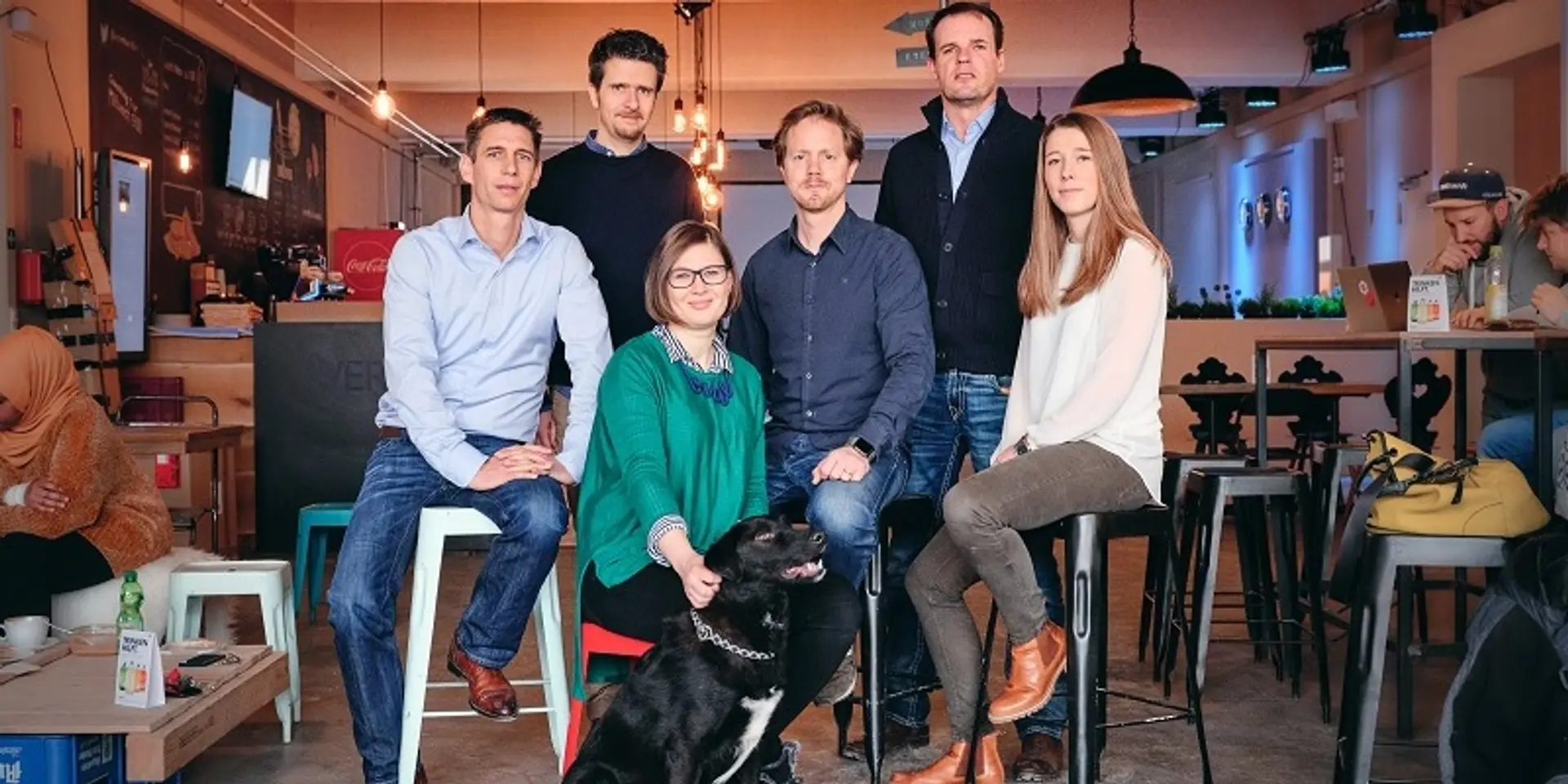14 insurance giants, 2 accelerators, 25 startups: how InsurTech Hub Munich is transforming insurance
Corine Ackermann, Community Manager of InsurTech Hub Munich, explains how this unique partnership runs two accelerator programmes for early-stage and advanced-stage startups.
[This article is part of Startup Hatch, the YourStory series on incubators, accelerators, makerspaces and co-working spaces in the startup ecosystem. See earlier profiles of initiatives at IIT Bombay, IIM Bangalore, BITS Pilani, NCL, Tata Elxsi, Axilor, NID, Vellore Institute of Technology, PSG Coimbatore, Makers Asylum, NetApp Excellerator, Pitney Bowes Accelerator, TechStars, Indigram Labs, WeWork, Z Nation Lab, Sandbox Startups, Brigade REAP, Target India Accelerator, Zone Startups, Maersk, Anthill Studio, UnternehmerTUM, AZO, EXIST, and Ashoka Innovators.]

Team ITHM
Based in Munich, the InsurTech Hub Munich (ITHM) is a cross-sector entrepreneurial platform to collaborate on creating innovative insurance products and services. It connects startups, corporates, universities, research centers, investors, and the government to transform the future of insurance.
ITHM is one of Germany’s 12 digital hubs supported by the Federal Government. It runs two accelerator programmes: W1 Forward InsurTech (a two-month programme with WERK1 hub, for early-stage startups) and InsurTechEurope pwd (by Plug and Play, for later-stage startups).
Founded in 2016, ITHM already has four batches of startups under its belt, supported by a network of mentors and coaches. The founders are not just from Germany but also India, UK, Austria, Australia, Netherlands, Spain, France and Thailand.
Community Manager Corine Ackermann joins us in this interview on the vision, contributions, achievements, and future plans of ITHM.
YourStory: What was the founding vision of your accelerator, and how is it supported?
Corine Ackermann: The founding vision of the accelerator is to provide access to innovation to a larger corporate audience through a community approach. We are trying to build a safer future together, where traditional competitors sit at the same table to exchange ideas and developments about innovation, agility and digitisation.
Our concept is being realised through strong collaborations between our non-for-profit association, and its 14 insurance members, strategic partners, and the WERK1 Incubator as well as the Bavarian state government.
YS: How many cohorts have you had, and which companies have graduated from your accelerator so far?
CA: The W1 Forward InsurTech Accelerator was founded in 2016 and has already four batches under its belt. We are currently underway with Batch 4 and look forward to hosting two batches a year as of 2020.

YS: Which startups are currently being accelerated?
CA: zentor is a digital mentor delivering science-based inspiration and meaningful projects for the pursuit of happiness, thus preventing mental health issues, and contributing to a more positive society. The platform provides inspiration for small things and big projects for a fulfilling life.
Previondo reduces the cost for medical needs of morbid patients. It aims to become the leading patient-centred digital health ecosystem, providing patients with the best solutions to their greatest health problems. It is working on a prototype for Smokify, a behavioural therapy-based smoking cessation coach.
reFit Systems has a therapy platform for rehabilitation, via digitisation and gamification of medical processes. AvoCard offers a single solution for doctor visits, covering payment and reimbursement. Melloon is a mobile app created by millennials for millennials, offering on-demand insurance products ranging from sales to relationship-building.
GO! Insurance is an on-demand insurance platform offering customers simple and comprehensive protection via an app. It is currently focussed on motor, travel, and mobility protection insurance. Braincities Lab provides context-aware recommendations to decision-makers via AI, based on data access, insights, and digital services.
WechselGott is an automated contract manager that analyses customers’ bank account transaction history to identify existing contracts and provide financial and insurance literacy.
Konfuzio helps customers leverage their information within documents and other texts to create new products and increase their efficiency.
TensorFlight specialises in satellite and street view imagery, with automated analysis for the insurance industry. This includes commercial property inspections, underwriting, and risk assessment powered by computer vision and AI.
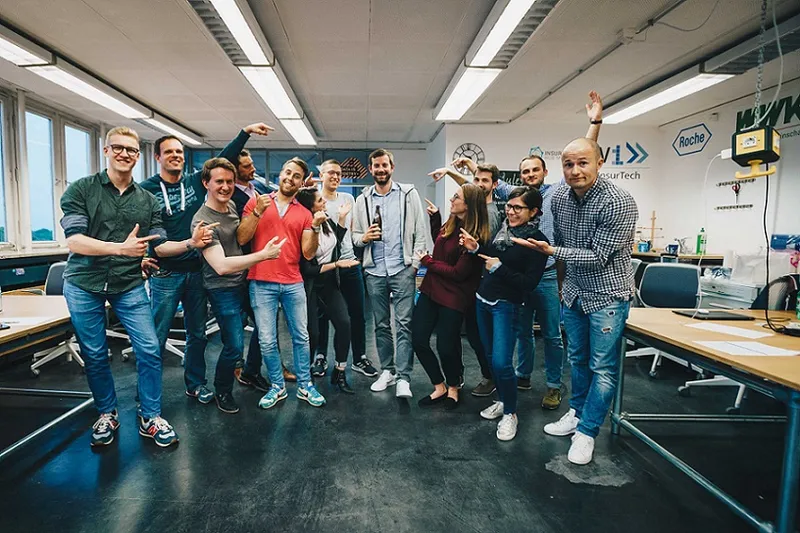
This year's startups at getsafe's founding story
YS: What is the profile of the managers of your accelerator?
CA: Our team of seven has a cohesive mix of insurance, innovation, accelerator, events, and community experience. We are a dynamic and open group that experiments with different formats to bring innovation to the insurance industry.
Our Managing Director Manuel Holzhauer has strong insurance experience with over 20 years in the industry, while also understanding the startup world as an insurtech founder himself.
Ben Shaw, Director of Programs and Strategy, is the most recent addition to the team, responsible for the operational and content programming of W1Forward InsurTech Accelerator. His computer science education and his accelerator background at Barclays complement our team.
The rest of our team consists of Florian Mann (CEO WERK1 and Co-founder of Fertila), Markus Walter (Communication Manager), Christian Gnam (Director, Partnerships), and Lisa Worgall (Hub Manager).
YS: What would you say are the top three opportunities for entrepreneurs in Germany?
CA: Access to a broad spectrum of industries, a large variety of B2B opportunities, and corporate openness to innovation and digitisation.
YS: What are the key challenges faced by startups in Germany, and how can you help bridge the gap?
CA: The main challenge for startups coming to Germany is that they often under-appreciate the country as an innovation hub and hence do not prioritise the market as an opportunity.
Unlike some other countries, innovation in Germany does not have a capital city. Instead, every large city is focused on different industries or verticals and acts as a headquarter for that industry. Although a complex landscape, this allows for a variety of opportunities for startups interested in the strongest European market.
The InsurTech Hub Munich is one of 16 innovation hubs that are part of the Digital Hub Initiative, supported by the German Federal Ministry of Economic Affairs and Energy. Together, we are bridging the gap between startups and the complex German market by regularly exchanging insights on successful innovation methods and promoting startups that could benefit from a different industry ecosystem.
Also read: Startup Guide Munich: how entrepreneurs connect with Germany's tech and automobile giants
Another challenge, often overlooked, is the difficulty to establish strong corporate contacts in the B2B market in Germany. Culturally, it is extremely difficult to find an ‘in’ to the right contact person in the targeted company, and who will be interested in what you are offering.
In Germany, a recommendation or some sort of quality assurance “stamp” is essential for big corporates to trust international startups. This is what we offer to our community. For startups, we are the intermediary that advises, consults, and helps to pivot the solution to match the needs of the insurance corporations, and makes the introduction not to one insurer, but to a potential 15.
Furthermore, we are offering corporates the best solutions to their use cases, while also assuring that the concept provider – the startup – is ready to enter discussions.

Corine Ackermann
YS: What are the unique challenges for social entrepreneurs as compared to mostly tech or business companies?
CA: Corporations have their hands full keeping up with the most digital solutions to get the smallest edge on their competitors, which leads to a de-prioritisation of social solutions. The unique challenge for social entrepreneurs is that they need to be just as digital and profitable as tech unicorns, on top of having an impactful solution.
YS: What are the selection criteria for startups in your accelerator?
CA: There is no recipe for success for a startup to be accepted into our accelerator. Generally, we are open to all disruptive ideas or stand-out founders. As the accelerator is an early-stage programme, we focus on enterprises with less than 10 employees and still bootstrapping or with seed funding. However, exceptions are made for startups that are new to the insurance sector, but further along in another vertical.
A large part of our filter is based on the corporate strategic interest from our partners. This changes for every batch, and gives us a general direction in which to scout. This way, we ensure a good range of startups that can work with the corporates. Of course, we always allow for some wild cards that do not directly fit the insurers' current innovation strategy. Many startups are answering questions that haven’t been asked yet!
Based on this partner discovery, we can also focus on the key criterion: is there partnership potential? Can our insurance members use this solution? This can be with new products, a fix for a specific use case, or a new approach to a non-optimal existing process.
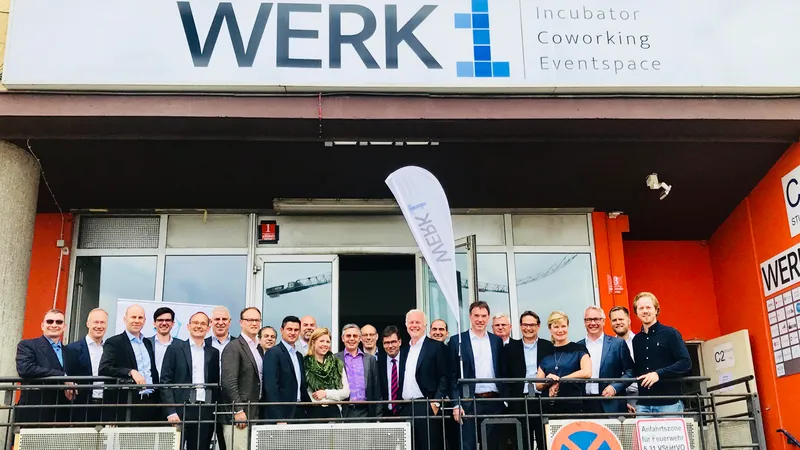
ITHM Advisory Board
YS: Who are some of your institutional partners?
CA: We have a wide range of partners, such as the Bavarian Ministry of Economic Affairs and WERK1, City of Munich, Federal Ministry of Economics (Digital Hub Initiative), and Universities such as LMU, Hochschule Coburg, and Universität der Bundeswehr München). Corporate partners include Allianz, ADAC, ARAG, Generali, Munich RE, Kasko, Roche, and Dai-Ichi Life.
YS: What support and services do startups receive in your accelerator?
CA: Our support is categorised into Business Development, Community, Events, Brand Awareness, and Logistics. We offer startups unparalleled access to the insurance industry with over 15 paying insurance members of the ITHM. This includes regional, national, and international market leaders. Companies like PwC offer coaching in insurance. We have commitment from insurers that are interested in spending time on a potential use case and collaborating further.
The eight-week curriculum includes coaching in technology, financial modelling, law, and other fields; support from 30 mentors; and keynotes by unicorns in the industry, such as wefox and Getsafe. Community and ecosystem support are provided by WERK1, Plug&Play Europe, Invest in Bavaria, and BayStartUP.
The Digital Hub Initiative (DE:Hub) provides cross-industry connections to influential players. There is also access to investors via events like VC Breakfast and Demo Day. We provide free event tickets to conventions and summits, such as Digital Insurance Agenda and SZ-Fachkonferenz KI und Big Data.
Brand awareness activities include newsletters, social media, blogs, and media access via interviews. Startups get free co-working space and access to facilities like meeting rooms with WiFi and printers.
YS: What percentage of equity or fees do you charge your startups?
CA: The W1 Forward InsurTech Accelerator is free of charge for startups. Our insurance members pay an annual membership fee that covers the accelerator costs and ensures a certain commitment from the corporates to support and partner with the startups. The only requirement for the founders joining the programme is full commitment for the eight weeks.
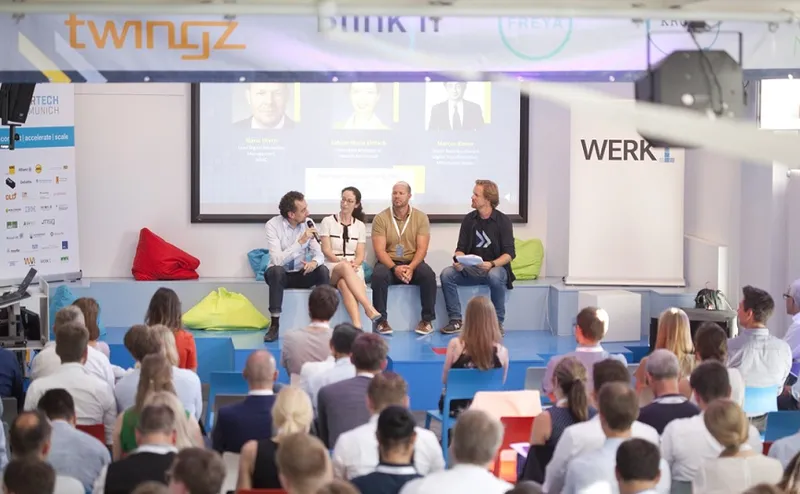
YS: How would you differentiate your accelerator from the other accelerators in the field?
CA: It is pretty common for a corporate to have an internal accelerator, but we offer access to 14 insurance corporations, all at once, for free. Success in a one-corporate accelerator does not guarantee a product market fit. However, if you are working with a majority of the market, it ensures a better exploration of the market before finding the startup’s fit.
Furthermore, each firm has different experiences and data that they are willing to share and support the startups with, giving a holistic introduction to the market and a lot of potential for a strong launch in the insurance sector.
YS: What would you define as success for your accelerator?
CA: Success for the W1 Forward InsurTech Accelerator comes from startups moving further along than if they were not a part of our programme. Our tangible goals are that startups become fully market-ready and/or investment-ready, via partnerships with our insurers and investment partners.
YS: What are some notable startups that have graduated from your accelerator, and what are their achievements?
CA: We have had many stand-out and successful startups, here are some of them. Kruzr, the AI-powered driving assistant mobile app has several partnerships in the pipeline with our corporate community, and just closed a funding round of $1.3 million.
Fair Fleet, a full-service partner for professional drone services, has a strategic partnership with VKB to inspect property damage claims. E-bot7, with an AI-based automated customer service, has pilots and cooperation talks with several ITHM members.
Twingz, which delivers predictive analytics based on anomaly detection from energy metadata, has cooperation with two ITHM members. Claimspace, which provides insurance companies with tools to engage and support their customers during the claim process, has one pilot and cooperation talks with ITHM members.
Shift Technologies, which leverages data science to automatically detect networks of fraudsters in insurance and ecommerce, has cooperation with two ITHM members.
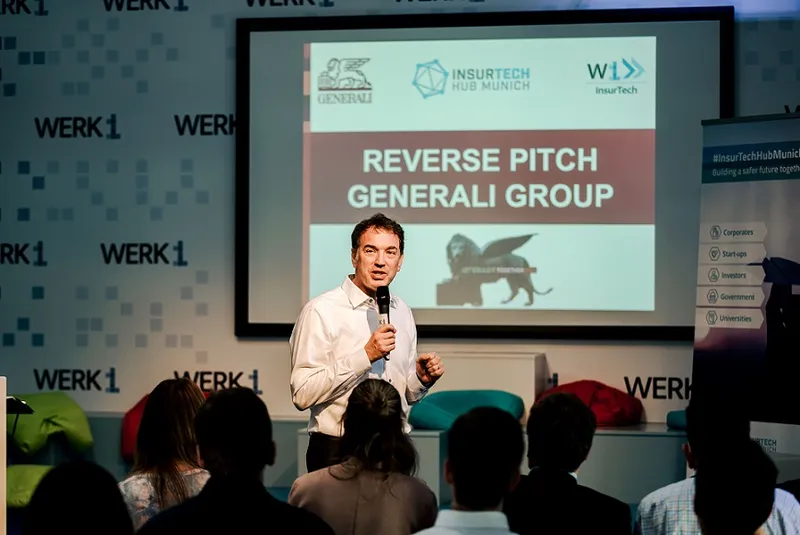
YS: What are the challenges you face, and how can they be overcome?
CA: We constantly face a chicken-and-egg problem where, without enough corporate members and partners, we can only fund so many events and support a limited number of the startups. Without the startup network and the extensive events, it is not easy to attract new members to the ecosystem.
This is a long-term game, and we are slowly able to find event formats that have the biggest RoI. With a more targeted approach to our current partners, we know what area to look for startups, meaning that our solution is getting better for all.
YS: How can better partnerships be forged between accelerators, industry, and universities?
CA: Currently, we have three universities that consult on our advisory board and their input is crucial. The next generation of talent for the industry will be coming from their schools, and so partnership is key.
One way we work together is through a research project where insurers pose generic insurance-innovation questions to students. As a group, they can research the query for university credit and present it back to the corporations. Not only is this a way for students to stand out in the talent pool, but it also allows corporates an insight into how a more digital, potentially less bureaucratically-focussed, generation would want the industry to look like. This is pivotal to the culture change that still needs to happen in the insurance industry.
Moving forward, we are hoping to allow students to work on such innovative projects in a mini-accelerator. They would have access to the same mentoring and coaching network that our startups have now. Their goal would be to co-create solutions to specific use cases raised by our partners.
YS: What are your recommendations or words of inspiration to the startups and entrepreneurs in our audience?
CA: If at first, you don’t succeed, find someone to help you to try again!
Ultimately, a startup’s success in a new market is a team effort. That’s why the InsurTech Hub Munich exists. As a not-for-profit organisation, our only goal is for startups to succeed with the right support, right contacts, and right focus in the insurance industry.
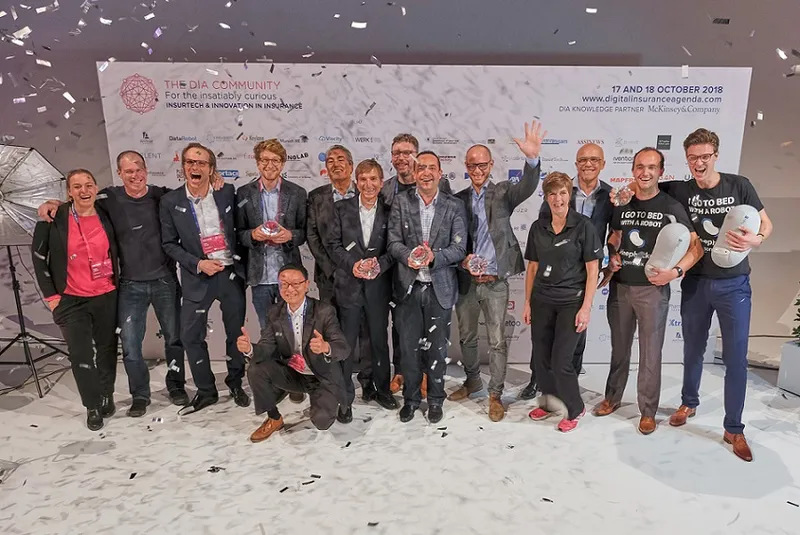
This visit to ITHM was made on invitation by the German government. The Indian delegation included Karnataka Startup Cell, Nasscom, Axilor and YourStory.
Also read: Agents of change: What insurtech startups need to do to bring a revolution in the industry


